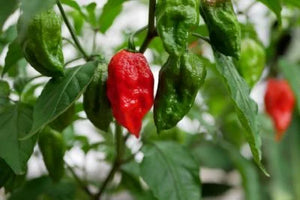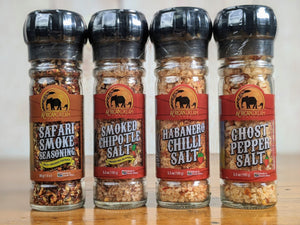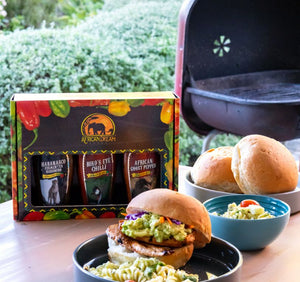The Psychology Behind Why Humans Love Hot Sauce
Apr 12, 2021
Some of us like it hot; a select few of us like it even hotter. From international chili-eating competitions to viral hot sauce challenges, a growing number of humans around the globe have developed a twisted passion for setting their own taste buds ablaze.
At the end of the day, our love for hot sauce’s fiery flavor is something of a biological anomaly. Think about it: no other species in the animal kingdom would knowingly and habitually submit themselves to searing oral pain.
If aliens, for example, were to land on Earth during Hatch Valley’s annual chile-eating contest or Italy’s yearly chili-eating marathon, they might sincerely question what drives large groups of primates to torture themselves with a weird little fruit that simulates a first-degree burn.

So why are we so obsessed with setting fire to our tongues? The answer, surprisingly, boils down to a secret ingredient and some really solid psychology.
Capsaicin: Hot Sauce’s Secret Ingredient
Scientists can’t pinpoint when humans developed a love for heat-packed delicacies—but they have nailed down the reasons why humans love hot sauce. When it comes to hot sauce’s satisfying kick, we have a unique chemical compound called “capsaicin” to thank. This hot little number can be found in chilis, cayenne, jalapenos, and any other pepper made famous for its fiery flavor.
According to leading research, plants most likely evolved to use capsaicin as a defense mechanism to keep predators from ingesting their seeds. But in an ironic twist of evolutionary fate, humans developed a taste for them. The rest—as they say—is history.
How Hot Sauce Mixes Pain and Pleasure
We might think about spiciness as a flavor, but when it comes to capsaicin, it’s not your taste buds that do the heavy lifting. Unlike salty or sweet foods, hot sauce’s irresistible burn is triggered by pain receptors in your TRPV1 nerves, which your body normally reserves for extreme heat. When you touch a hot stove or burn your hand on a curling iron, for example, your TRPV1 receptors are the first ones to know.

Basically, capsaicin tricks your brain into thinking that your mouth is quite literally on fire. In response, your body releases a flood of feel-good chemicals to cool you down and relieve the pain. Of course, you’re not actually in any danger of being seriously injured—but thankfully, your TRPV1 receptors don’t know that. At the end of the day, your brain receives all of the reward with none of the risk—which is exactly what has conditioned so many of us to love hot sauce’s scorching bite.
Addicted to Hot Sauce? There’s a Reason Why
Psychologically speaking, hot sauce offers your body all of the feel-good benefits of an adrenaline rush without any of the hassle or hazard. No wonder humans love hot sauce so much! For those of us who can’t bungee jump on our lunch break, the tongue-tingling condiment is a harmless (and delicious) way to cheat the body’s chemical reward system and score a little extra of the “good stuff” with any meal.
Interestingly, hot-sauce-induced adrenaline hits can become pretty addictive. Of course, like any drug, habitual ingestion of spicy foods will eventually build tolerance. That’s why, as your system acclimates, you just might find your taste buds begging for even more.
Don’t worry, though: unlike most other addictions, the health implications of a hot sauce habit are overwhelmingly positive. Reduced risk of type 2 diabetes, improved digestion, and an increased metabolism are just a few of its many perks.
To peruse African Dream Foods full range of mild to hot-hot-hot sauces, spices and seasonings; simply click here. Go on – you’re just a few clicks away from the most satisfying, safe, feel good rush there is!




